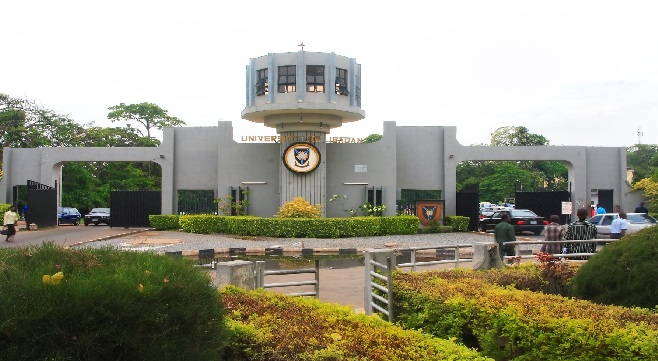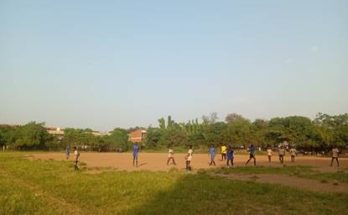By Nafisat Ogunsesan
The meeting with 300-L students organised by the UI Emergency Remote Teaching Committee (ERTC) which was conducted on Zoom and YouTube Tuesday, March 9 saw discussions on how the virtual learning would be conducted.
The meeting was hosted by Professor Akin Odebunmi from the department of English who welcomed the students and admonished them to be assured that the virtual learning will commence soon as readiness is ascertained.
According to the Acting Vice-Chancellor, Professor Adebola Ekanola, who was present at the meeting, very few people didn’t make it to 300l which implies that many students passed and that was good news. He also advised the students to stay at home to receive lectures for the first semester as they have no ‘business on campus’ and also avoid the exorbitant fee at which accommodation outside campus is charged. He assured the students that the virtual classes will also hold pretty soon.
After that, the host educated the students on the reasons why the Emergency Remote Teaching Committee (ERTC) was established and those who constituted it. He said the committee was a ‘baby of covid-19’. It came as a result of the new normal and the order from the National Universities Commission (NUC) for all tertiary institutions to consider virtual learning. The committee exists to discuss the virtual classes- which will be a ‘representation of what is done on campus.’ The committee now consists of 10 members as two more members are expected. Among whom are Akin Odebunmi- the Chairman of the committee, Prof Ayotola Aremu, Dr Abiodun Alao, Dr Demola Lewis, Mr Ajisafe Taiwo and Omitoyin Feranmi, the Speaker of the Student Union (SU) as a representative of the student body.
Moving on, the Dean of Student, Profesor Keye Abiona also admonished students to take precautionary measures against Covid-19 whilst they are at home and take the virtual lectures seriously. After he spoke, the SU President, Mr Akeju Oluwasegun, admonished the students to also stay at home. He also talked about the insecurity on campus which is now being attended to. Lastly, he informed the students that the SU has successfully pleaded to the school to allow students to participate in lectures before paying on the portal
Prof Akin Odebunmi further discussed the operational structure of the ERT. There is a central level of operation where decisions are taken and sent to sub-committees. There are different sub-committees: for the staff members and the students. For the staff, there are the coaches of faculty facilitators at the faculty level and a committee of departmental representatives who train all the lecturers on what they need to know about virtual teaching. At the student level, Dr Demola Lewis and Mr Feranmi Omitoyin represent the committee. They report information about the virtual classes to the students. There are executive members of faculty associations, departmental associations and course level representatives. Lastly, he mentioned that there are many WhatsApp and Telegram groups for the communication of information to all these sub-committees.
Also, Dr Demola Lewis asked a few students about their knowledge of the ERT being used. Then, Dr. Abiodun Alao discussed the login processes on the student portal, LMS portal and students’ institutionalized emails. For the institutionalized email, she talked about how to reset their password for easier access by accessing http://osmis.ui.edu.ng. Then, students should access the school’s website at www.ui.edu.ng to check their departmental website and source information about courses to register for, course level coordinators, etc. Also, students are required to log in to their student portal at www.portal.ui.edu.ng to access the payment portal, pick the necessary course, register and await approval. It should be noted that registration is only complete once approved.
Also, she informed the students to expect the login details to your LMS portal accessible at www.lms.ui.edu.ng in their students from March 10, 2021, and she gave a step-by-step process of how to log into the LMS Page. Also, on the LMS page, there would be Zoom links to attend real-time classes and YouTube channels’ links for lecture-related videos. Registration on the LMS page closes 16th of April 2021.
As regards how lecturers will be conducted, Dr. Demola Lewis said the lectures will be recorded and there will be specialised emails for each course. Lectures would be through the asynchronous session. For each weekly contact, students could have the following notes (.doc or .pdf) to read and review, voice-over PowerPoint slides to Read and review, other online resources (Web-pages, documents, PDF links, etc) to read and review, screencast videos of the content to listen to and review: these videos are uploaded into dedicated YouTube channels), audio recording to listen to and review, online videos (sourced from YouTube, or other universities like MIT, OER AFRICA, etc) to review and questions to respond to as you read and review so learning would be effective.
For the synchronous session, that would be done on Zoom. For 4 unit courses, it will be done twice a week, one hour for face to face interaction class with your teacher to reflect on what you have learnt in the asynchronous session. Students should find out the time for each course in their departmental timetables.
He also stated the ground rules for synchronous sessions which include non-anonymity: students’ device should bear your first name and surname and matriculation number for smooth interaction and attendance, students should mute their audio or video options except when required, use the appropriate emoticons in the toolbars to interact, get lecturer’s approval for screen sharing or sharing of the content and info in the chats and lastly, the proper dressing must be observed
Moving on, attendance could be taken through submission on tasks and activities for the asynchronous sessions, ample assignments and quizzes given with deadlines. Also, he mentioned that tests and quizzes may be impromptu. The general rule is for meeting deadlines to attract 40%, synchronous classes 30% and participation in follow up activities on LMS, WhatsApp, Telegram pages, etc) should take 30% of the attendance. However, this is subject to modification by each department or faculty. Students must strive to have a minimum percentage of 75% of the attendance.
The last activity done was the Questions and Answers session. Students asked some questions like, is registration on the LMS page for the first semester only or the whole session, when will results be out and how would they be assessed, will the school provide data for the students, what are the modalities for the virtual tests and exams and how would practical classes be conducted?
To answer the questions, Dr. Abiodun Alao pointed out the student portal should be opened before the end of February 10, 2021. She also said that the university might provide data support for students. According to her, results should be out before the end of this week. According to Dr. Demola Lewis, the executives of each faculty are working on how to collect the Faculty and departmental dues as asked by a student. Lastly, Dr Alao said assignments, presentations, quizzes, etc may be used as mid-semester tests and information on the conduct of first semester examinations will be subsequently communicated to the students.
In conclusion, the Acting VC gave his closing speech and the students were again advised to take the virtual classes seriously and ask questions whenever they experience any problem during registration on the LMS portal or as regards the virtual classes.




